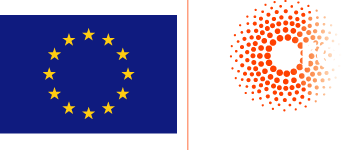Principal Investigators
Jorge Almeida
I grew up in Lisbon, Portugal, where I received my BA in Psychology (2003; Faculty of Psychology, University of Lisbon). There I worked with Leonel Garcia Marques on topics of person perception, and Paulo Ventura on semantic memory. I then moved to Cambridge MA, USA, where I did my PhD (and MA) in Psychology at the Department of Psychology Harvard University (2011) with Alfonso Caramazza in the Cognitive Neuropsychology Laboratory and Ken Nakayama in the Vision Sciences Lab. I focused on the kinds of information that are processed unconsciously under continuous flash suppression, and on the processing of tools/manipulable objects. After my PhD I started working on the neural processing of tool items, focusing on how different types of tool-related information are processed in the brain and on how tool-related regions modulate the signal in other tool-related regions.
I am currently a Full Professor at the Faculty of Psychology and Educational Sciences – University of Coimbra, Portugal. I am now focusing on how object-related information is mapped in the brain and how local object-selectively is defined within domain-specific networks via long-range connectivity. To do so I use fMRI, neuromodulation and behavioural testing. I am currently the PI or Co-PI in 4 FCT research projects, and the PI of the first ERC grant in the field of Psychology in Portugal – ContentMAP. My core research topics are cognitive neuroscience, object recognition, neural organization of conceptual knowledge, category specificity in the brain, neuroplasticity, and effects of neurostimulation on neural processing. To address these questions, I have the pleasure of collaborating with fantastic researchers around the world namely Bradford Mahon and the CAOs Lab now at Carnegie Mellon University; Angelika Lingnau at Regensburg University; Yanchao Bi and Fang Fang at Beijing Normal University and Peking University respectively; Mel Goodale and Jody Culham at Western University, among others.
Most importantly, I have been fortunate to have the help of an outstanding group of researchers at the Proaction Lab – you can meet them below!
Post-Doctoral Researchers
Rebecca Lowndes
Rebecca Lowndes obtained her PhD by Publication and MPSYCH degree in Cognitive Neuroscience and Neuroimaging at the University of York. She was a research technician at the York Neuroimaging Centre for six years, before becoming a research associate. At York, Rebecca's research focused on chromatic vision and using pRF methods in fMRI. She is currently a post-doc researcher at Proaction Lab.
Currently, Rebecca is working on object perception and manipulation and exploring the idea of contentopic maps using fMRI and eye tracking methods.
Xingnan Zhao
Xingnan Zhao received her PhD in Cognitive Neuroscience (July 2023), an MSc in Developmental Psychology from Peking University (China), and a BSc in Psychology from China University of Political Science and Law. During her master's studies, she investigated children's cognition and reading development. For her PhD, she focused on the neuronal and computational mechanisms of visual perception, using two-photon calcium imaging on awake macaques. She also conducted psychophysical experiments to explore perceptual learning and the transfer of time perception in human adults.
Currently, Xingnan is a postdoctoral fellow at the Proaction Lab. Her main academic interests focus on how object knowledge is organized and represented both neurally and cognitively, using psychophysics, fMRI, and machine learning methods.
Zohar Tal
Zohar Tal holds an MA and PhD in Neurobiology from the Hebrew University of Jerusalem (Israel), where her doctoral research focused on the principles of topographic organization, with an emphasis on the somatosensory and visual systems and their cross-modal correspondence. Following this, she completed a postdoctoral fellowship at Tel Aviv University, studying the behavioral and neural adaptations of bats to urban environments.
Currently, Zohar is a fellow researcher at the Proaction Lab, investigating topography as a central organizational principle in the brain. Her research explores how topographic organization shapes sensory systems and influences higher-order functions, such as the organization of object knowledge. By employing advanced neuroimaging techniques to analyze both positive and negative BOLD signals, she also examines how the brain adapts to sensory deprivation, highlighting the role of topographic reorganization in cross-modal plasticity.
PhD Students
Beatriz Janicas
Beatriz Janicas did her Bachelor's in Psychology and a Cognitive Neuropsychology Research Master's at Vrije Universiteit Amsterdam. She discovered her passion for Neurosciences during her studies at the University of Coimbra, and she knew since then that she wanted to do neuropsychological research and later teach. She's intrigued by how language changes our perception of the world and how humans make decisions. For the past year, she has been a part of the Junior Researcher Programme, investigating the interplay between metabolic state, impulsivity, self-control, and their combined effects on risk-seeking behaviour. She is working within the CogBooster project in research on language deficits.
Filipa Dourado Sotero
Filipa Dourado Sotero is a neurology specialist at Hospital Santa Maria – Centro Hospitalar Lisboa Norte - Lisbon, Portugal. She received her master's degree in Medicine from the Faculty of Medicine, University of Coimbra. Since the beginning of her career she has endeavoured to combine clinical and academic training. During her residency, Filipa developed a particular interest in cognitive and behavioural neurology, especially the study of apraxia. She is actively engaged in clinical and research activities related to actions, object use and object recognition.
Igor Vaz
Igor Vaz received a bachelor's degree in Electrical Engineering from the Federal University of Paraiba (Brazil), and a Master's in Neuroengineering at Edmond and Lily Safra International Institute of Neurosciences (Brazil). In his master's he focused on signal processing of fMRI data, Computer Vision and Deep Learning, which drove his interest in state of the art research about Artificial Neural Networks for modelling the human visual system.
In the past years he was working as a Machine Learning Engineer in the fields of Computer Vision and Natural Language Processing, developing solutions for the Restaurants, 3D Design, Agriculture and Public Surveillance sectors.
Igor has recently begun his PhD studies in the area of Explainable Multimodal Deep Neural Networks at the University of Coimbra, in the Proaction Lab. The focus of his research is to predict the cognitive performance of elderly individuals in the near future using artificial intelligence techniques. By developing models that can analyze and interpret data from multiple modalities (such as brain imaging, behavioral assessments, and medical records), he aims to detect abnormal cognitive decline at an early stage, which can potentially improve the quality of life of the elderly and reduce the burden on the healthcare system. His work also has the potential to reveal new insights into the neurophysiological mechanisms underlying cognitive decline in aging, which can inform the development of new interventions and treatments. With his strong background in electrical engineering, neuroengineering, and machine learning, Igor is well-equipped to tackle this challenging and important research problem.
Joana Sayal
Joana obtained her BA in Psychology from the University of Coimbra, and in 2022 she finished the Interuniversity Master in Clinical and Experimental Neuropsychology from the Universities of Lisbon, Coimbra, and Minho. She has been a student collaborator at Proaction Laboratory since October 2017, assisting research by collecting and analysing experimental data. Her first experience was in a neuromodulation project involving transcranial direct current stimulation and its effect on anxiety, and then she started focusing on the topic that later became her master thesis: neuroplasticity in congenitally deaf adults, using functional magnetic resonance imaging and population receptive field analysis.
Currently, Joana is a PhD student integrated in the CO&MA Team of Proaction Lab. As a trained musician herself (cello), she focuses on the effects of music/sound on consciousness and cognition.
Find more about her here.
Miguel Baião
Miguel Baião received his BSc in Psychology from the Faculty of Psychology (ULisboa), and his MSc in Neuroscience from the Faculty of Medicine (ULisboa). In his master thesis, he studied personality-based differences in the processing of subliminal affective stimuli, and the associated ERPs. Currently, Miguel is a PhD Candidate at the Doctoral Program in Cognitive Science (ULisboa).
His PhD work, supervised by Jorge Almeida and Gabriel Besson, focuses on the application of EEG and RSA to study the processing of tools at the type and token levels. His interests include unconscious versus conscious processing, conversion of visual maps into motor maps, topographic organization of information in the brain, and decoding of EEG signals. Find out more about him here.
Pedro Palhares
Pedro has an integrated double MSc in Psychology from the University of Minho (Portugal) and the University of Lille (France), specializing in neuropsychology and cognitive-affective
Pedro’s current work aims to investigate the structure and configuration of consciousness during mind-wandering, aesthetic absorption, creative thinking and other altered states of consciousness. He combines transcranial magnetic stimulation with electroencephalography (TMS-EEG) to directly probe both local and widespread changes in brain neurophysiology during these states as they occur in music listening and musical performance.
Research Assistants
José Gomes
José Gomes graduated in Biomedical Sciences from the University of Aveiro in 2022 and completed his Master's degree in Biomedical Research at the University of Coimbra in 2024. With a deep-rooted interest in neuroscience, José has long been fascinated by philosophical questions about the human brain, such as how we think, form memories, and experience emotions, and more recently, how we perceive and recognize objects in the visual world. This curiosity fuels his passion to understand the mind and explore the tools that allow us to study its complex processes.
During his Master's thesis, José worked with fMRI data and machine learning algorithms to identify patterns of neural activity. Now, as a Research Assistant at Proaction Lab, he aims to continue developing his expertise in cognitive neuroscience and machine learning, applying these techniques to further investigate how the brain processes visual information and recognizes objects.
Luca Serrière
Luca Serrière has obtained a BSc in Psychology and a MSc in Neuropsychology at the Erasmus University of Rotterdam. He has conducted research concerning visual cognitive processing of simple stimuli, identifying biases and completion strategies of partially occluded objects.
He is now a research assistant at the Proaction Lab and also part of the CogBooster Junior Team.
Science Communicators
Mariana Coimbra
Mariana Coimbra obtained her BA and Master’s degree in Communication and Journalism from the University of Coimbra (Portugal) and she's now doing a PhD in Communication Sciences. She worked as a journalist in national newspapers like Público (as a trainee) and in Expresso. Shortly after, Mariana developed an interest in corporate communication and became a Communication Specialist, working in different areas. For more than a decade Mariana was a Communication and Corporate Social Responsibility Manager of a Health Clinic. Mariana is now working on the communication and project management of the Lab.
Collaborators
Pedro Dantas
I obtained my bachelor's in Psychology at the Faculty of Psychology and Educational Sciences in the University of Coimbra, where I remain for my master's in Clinical Neuropsychology. As of now, I am completing my internship at ProAction Lab, with a particular interest in research in intuitive physics.












